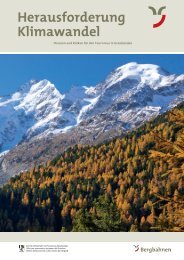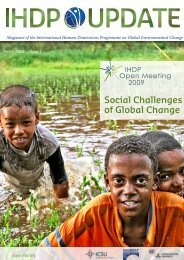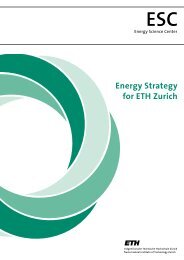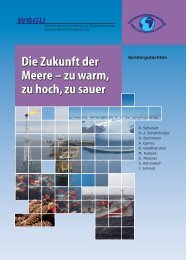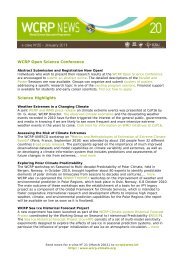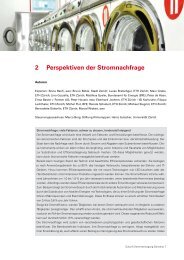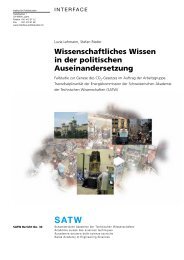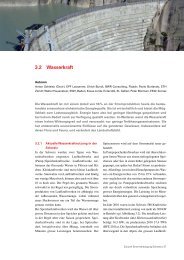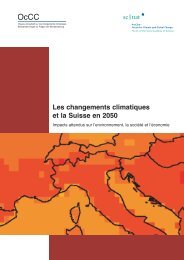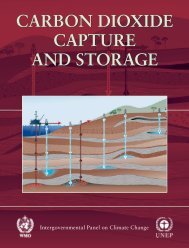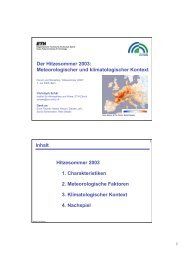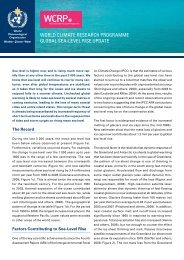1687.pdf
1687.pdf
1687.pdf
You also want an ePaper? Increase the reach of your titles
YUMPU automatically turns print PDFs into web optimized ePapers that Google loves.
2<br />
Science Features<br />
Virtual water trade between nations:<br />
a global mechanism affecting regional<br />
water systems<br />
by A.Y. Hoekstra<br />
How can people in Japan affect the hydrological system in<br />
the United States? And how do people in the Netherlands<br />
affect regional water systems in Brazil? The obvious answer is:<br />
through contributing to changes in the global climate system.<br />
We know that local emissions of greenhouse gasses contribute<br />
to the predicted change of the global climate, thus affecting<br />
temperature, evaporation and precipitation patterns elsewhere.<br />
There is however a second mechanism through which countries<br />
affect water systems in other parts of the world. There is<br />
a direct link between the demand for water-intensive products<br />
(notably crops) in countries such as Japan and the Netherlands<br />
and the water used for production of export goods in countries<br />
such as the United States and Brazil. The water used for<br />
producing export goods for the global market signifi cantly contributes<br />
to the change of regional water systems.<br />
Japanese consumers put pressure<br />
on water resources in the<br />
US, contributing to the mining<br />
of aquifers, emptying of rivers<br />
and increased evaporation in<br />
North America. We know the<br />
examples of the mined Ogallala<br />
Aquifer and emptied Colorado<br />
River. Dutch consumers contribute,<br />
to a highly signifi cant<br />
degree, to the water demand in<br />
Brazil. The question put here is:<br />
how signifi cant are these tele<br />
connections in the global water<br />
system via the mechanism of<br />
global trade? Recent research<br />
[1,2] shows that the impact<br />
of global trade on regional<br />
water systems is at least as<br />
important as the impact of climate<br />
change on regional water<br />
systems. Although a large part<br />
of the impacts of climate change<br />
are yet to come, the impacts of<br />
global trade on water systems<br />
Virtual Water Pilot<br />
Project<br />
are visible and already occurring<br />
today.<br />
Producing goods and services<br />
generally requires water. The<br />
water used in the production process<br />
of an agricultural or industrial<br />
product is called the ‘virtual<br />
water’ contained in the product.<br />
About ten years ago, Tony Allan,<br />
from the University of London,<br />
introduced this concept. For<br />
example, in order to produce 1<br />
kg of grain we need 1-2 m 3 of<br />
water. Producing 1 kg of cheese<br />
requires 5 m 3 of water and for<br />
1 kg of beef we need 16 m 3<br />
of water on average. If one<br />
country exports a water-intensive<br />
product to another country, it<br />
exports water in virtual form.<br />
In this way some countries support<br />
other countries in their<br />
water needs. Trade of real water<br />
between water-rich and water-<br />
The new Global Water System Project (www.gwsp.org) analyses<br />
the impacts of human activities on the Global Water System,<br />
emphasising the interactions and feedback between the global<br />
and the regional scale. Virtual water provides a teleconnection<br />
in the Global Water System, linking through global trade water<br />
resources in different regions. Virtual water trade also illustrates<br />
the interactions in the coupled human-environment system, a key<br />
aspect of the Earth System Science Partnership. It has biophysical<br />
dimensions, such as climate induced water scarcity as a driver<br />
or water savings through production in more humid regions, but<br />
also socio-economic dimensions, such as allocations of water at<br />
different scales, opportunity costs of water used in export agriculture<br />
etc. The GWSP has initiated a Virtual Water Pilot Project,<br />
synthesising information on current virtual water fl uxes and outlining<br />
relevant research questions as a fast track activity. It may<br />
address questions of environmental or socio-economic impacts<br />
of virtual water trade, or the usefulness of virtual water trade as<br />
a tool in an integrated water resources management context, or<br />
the potential for compensation mechanisms for the water footprint<br />
that countries leave in other regions.



